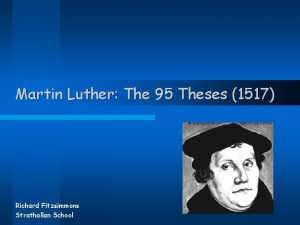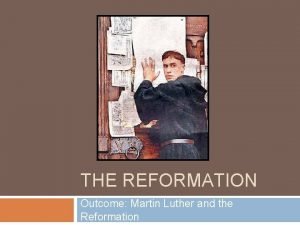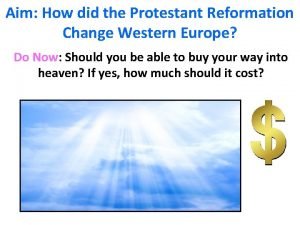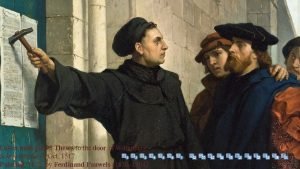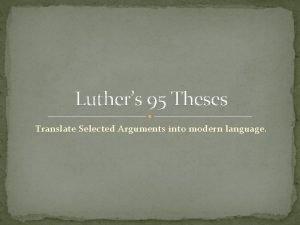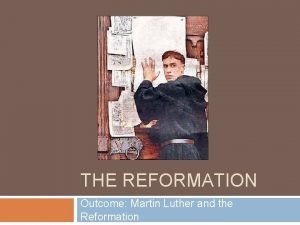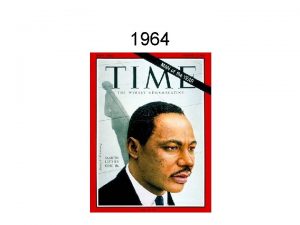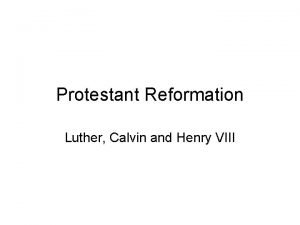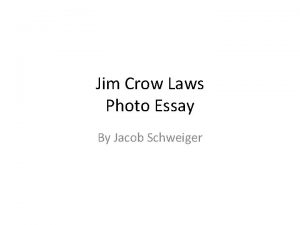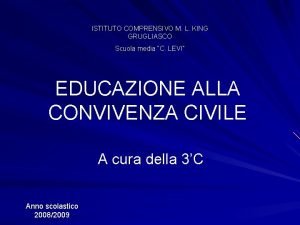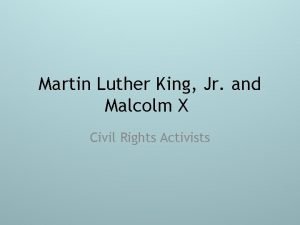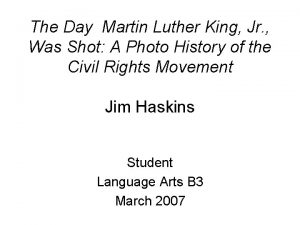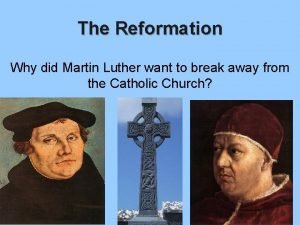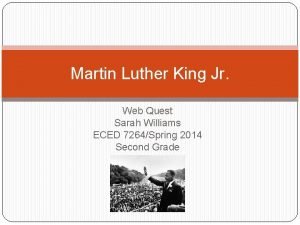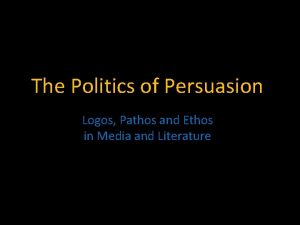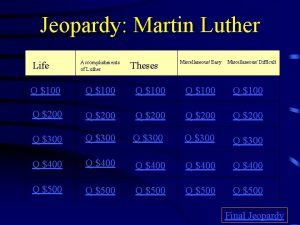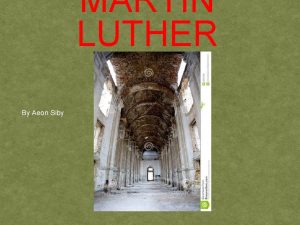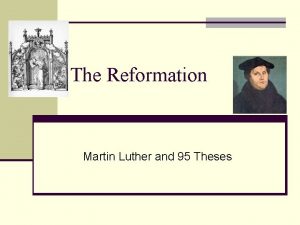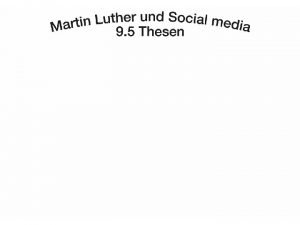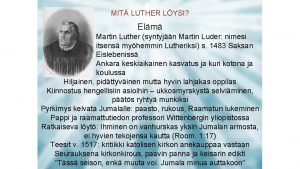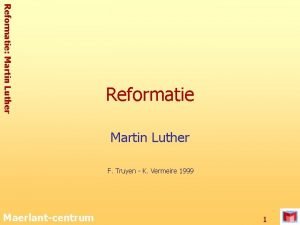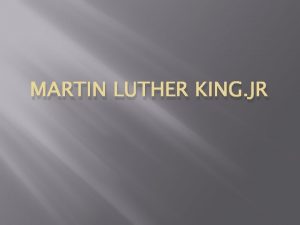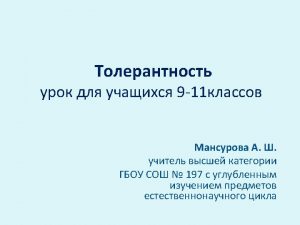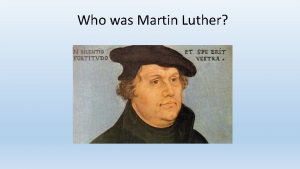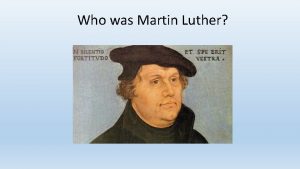Martin Luther Posting of the NinetyFive Theses on















- Slides: 15

Martin Luther Posting of the Ninety-Five Theses on the Church in Wittenberg 10/31/1517

Martin Luther • Monk and a teacher • Taught scripture at University of Wittenberg • Upset by actions of friar Johann Tetzel

Causes for Reformation • Social • Political • Economic • Religious

Social Causes for Reformation • Renaissance values of humanism and secularism led people to question the Church • Printing press helped spread criticism and critical ideas about the Church

Political Causes for Reformation • Powerful monarchs challenged the Church as the supreme power in Europe • Many leaders viewed the pope as a foreign ruler and challenged his authority

Economic Causes for Reformation • European princes and kings were jealous of Church’s wealth • Merchants and others resented having to pay taxes to the Church

Religious Causes for Reformation • Some Church leaders had become worldly and corrupt • Many people found Church practices such as the sale of indulgences unacceptable – Indulgences were pardons that released a sinner from performing the penalty a priest imposed for sins.

Ninety-Five Theses • 10/31/1517 Halloween! • Luther posts his Ninety-Five Theses on the Church in Wittenberg as a response to the problems he found with the Church • He wanted other scholars to debate him • There was no intent to create a new religion… he simply wanted to attack the “pardon merchants” within the Church

Luther’s Teachings • People could achieve salvation only by faith in God’s gift of forgiveness (Good works were not needed) • All Church teachings should be based clearly on the words of the Bible • All people with faith are equal… therefore there was no need for priests to interpret the Bible for people

Results that Followed • • • Excommunication Formation of Lutherans Peasants revolted in Europe Political/Religious upheaval in Europe Protestantism

Excommunication • 1520 Pope Leo X threatened Luther with excommunication (banishment from the Church) • Luther did not retract his statements or ask forgiveness from Pope Leo X and was then excommunicated

Edict of Worms • 1521 Luther was ordered to stand trial for or recant his statements. • Luther again refused and the Edict of Worms was made by Holy Roman Emperor Charles V declaring Luther an outlaw and a heretic • 1522 Lutherans were now practicing the teachings of Luther in Wittenberg

Peasants Revolt • 1524 - Luther’s ideas were applied to society (Freedoms/Equality) • Peasants demanded an end to serfdom and destroyed and pillaged monasteries • Luther was horrified and supported the princes in putting down the revolt • 100, 000 people died • Others felt alienated and rejected Luther as a leader

German Princes at War • Many German princes supported Luther • This was a way for many to free themselves from the rule of Charles V the Holy Roman Emperor • 1529 an agreement was signed by those who supported the Pope… others supported Luther and protested becoming known as Protestants

 Martin luther king 95 theses
Martin luther king 95 theses What drove martin luther to write the 95 theses
What drove martin luther to write the 95 theses Martin luther 95 theses summary
Martin luther 95 theses summary Martin luther nails 95 theses
Martin luther nails 95 theses Luther 95 theses translation
Luther 95 theses translation The reformation outcome: martin luther and the reformation
The reformation outcome: martin luther and the reformation Martin luther king of hinduism
Martin luther king of hinduism Lutheranism def
Lutheranism def Conclusion martin luther king
Conclusion martin luther king King grugliasco
King grugliasco Malcolm x vs martin luther king
Malcolm x vs martin luther king The day martin luther king jr was shot by jim haskins
The day martin luther king jr was shot by jim haskins Martin luther
Martin luther Musikepochen zeitstrahl
Musikepochen zeitstrahl Brainpop jr martin luther king jr
Brainpop jr martin luther king jr Ethos in martin luther king speech
Ethos in martin luther king speech
